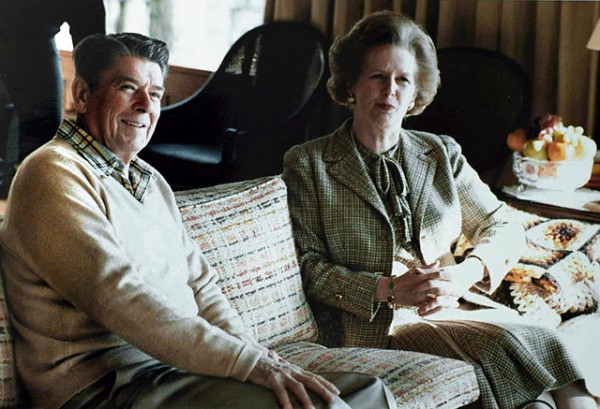The retreat of the middle class began before the rise of Reagan and Thatcher, but their supply-side policies, which promised to rectify this backslide, to create one big class of haves, was always farce played as drama, voodoo offered as science. Instead, these schemes, which were credited with defeating communism, may have ultimately done the same to capitalism as we know it. The reality has become even starker since the rally which followed the post-2008 collapse has been a recovery of the few. A reconfiguring is desperately needed.
In the “The Middle-Class Squeeze,” Charles Moore’s article at the WSJ, the essayist looks at how this contemporary discomfort has been good for hard-right and -left politicians and not much else. Moore says that “pretty much the whole of the developed world is still in the convalescent ward” and offers some prescriptions, including more employee-owned companies. It’s probably going to require much more than that in the U.S., including a serious reworking of our tax codes. An excerpt:
In Britain and the U.S., we are learning all over again that it is not the natural condition of the human race for children to be better off than their parents. Such a regression, in societies that assume constant progress, is striking. Imagine the panic if the same thing happened to life expectancy.
When things go backward in nations accustomed to middle-class stability, people start to ask questions. What is the use of capitalism if its rewards go to the few and its risks are dumped on the many? The rights of property do not seem so enticing if the value of what you own collapses or if that property is trapped by debt. What is so great about globalization if it means that the products and services you offer are undercut by foreign competition and that millions of new people can come to your country, take your jobs and enjoy your welfare benefits?
Great international banks and other corporations—and their top executives—can devise a life that escapes normal tax jurisdictions. Their successes are globalized and accrue chiefly to them; their failures crawl back home to die, at the expense of the rest of us.
So instead of feeling that it is a privilege to be an ordinary citizen of a free country, many of us start to feel a bit like suckers. Hope—the inseparable companion of progress—fades and is replaced by disappointment, even bitterness. It has always been understood that opportunity carries some price of insecurity, but what happens if insecurity rises and opportunity contracts?•
Tags: Charles Moore

